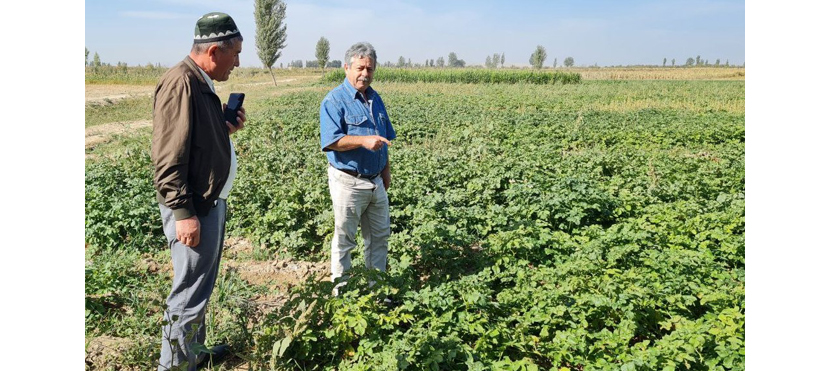Billions of people cannot imagine their daily diet without potatoes, which are the world’s third most important food crop. Potatoes offer a low-fat, high-fibre source of healthy carbohydrates rich in antioxidants and nutrients, and also generate fewer greenhouse gas emissions than other major crops. Meanwhile, potatoes are not only commonly consumed food, but also a source of income for agricultural producers, including smallholders. According to the Food and Agriculture Organization of the United Nations (FAO), today potatoes are cultivated on more than 20 million hectares in 150 countries for a total global output of 359 million tons in 2020.
As in many countries, the COVID-19 pandemic has had a lot of impact on the potato sector in Uzbekistan. The demand for potatoes from the consumers could not be met due to restrictions in movement of goods and people, creating threats to the food security. In this regard, since last year FAO in cooperation with the Ministry of Agriculture of the Republic of Uzbekistan implements the project “Recovery and development of the potato sector in response to COVID-19”. The project is aimed at ensuring the food security in the country through the enhancement of the capacity of the potato sector to produce high, sustainable and good quality yields of potatoes. The project works on improving breeding and seed certification systems, proper plant protection, research on the modernization of potato production, improving storage conditions as well as on capacity building for farmers, agronomists and other specialists involved in potato sector. The project is being implemented based on best foreign practices with participation of international experts.
Under the scope of the project in late October 2022 Piotr Wlodarczyk, Agricultural Officer of the FAO Regional Office for Europe and Central Asia, visited Uzbekistan to study and analyse the current situation in the potato sector of the country. During the visit he held meetings in the Ministry of Agriculture of the Republic of Uzbekistan, in the Scientific Research Institute of Vegetables, Melons and Potatoes and in other relevant organizations, including the Agrover Cluster and the Variety Testing Station situated in the Tashkent region.
Earlier, in September 2022, Polgar Zsolt, FAO International Consultant on Potato Cultivar Registration, visited Uzbekistan with the similar mission. During the visit he studied the current situation in production of seed and ware potatoes, assessed the potential and obstacles to the development of the potato sector. Polgar Zsolt held meetings with the stakeholders from the Ministry of Agriculture of the Republic of Uzbekistan and from the other relevant institutions including Variety testing center, National Center for Knowledge and Innovation in Agriculture, Uzbek – Hungarian Potato Center and the Plant Genetic Resources Research Institute. During the mission, expert also visited the Fergana Valley, where he communicated with farmers and workers of agro-clusters who are engaged in the production of seed potatoes. They discussed current methods of production and use of certified seeds, the procedures of the seed potato certification system and the release of varieties.
The data collected by the experts will be used to provide recommendations on improving the production potential of the industry, the system for registering potato varieties and seed certification. As a whole, the implementation of this FAO project will contribute to the development of a sustainable potato production system based on international best practices.

